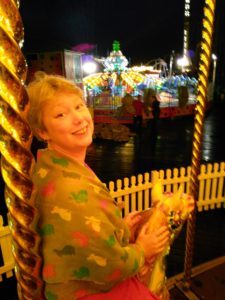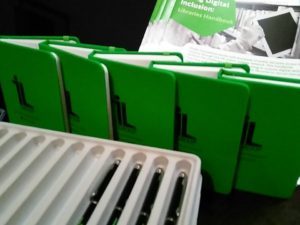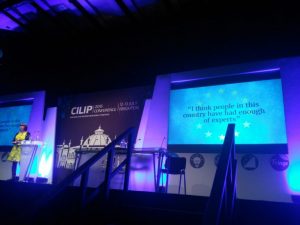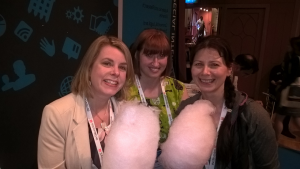Rebecca Jones, Schools Representative for the CILIP Information Literacy Group (ILG), has kindly provided a report on the CILIP Conference 2016, held in Brighton on 14th-15th July.
This was the first CILIP conference that I have attended and I was not disappointed with the event. Based in Brighton, the event had a seaside theme with the networking evening being located on the pier, complete with fish and chip supper, and candyfloss and popcorn made available for delegates in the main conference area as they browsed the supplier stands.
This year there was definitely an IL theme running through several of the presentations and keynotes, which kept on underlining the importance that these skills play in a world that is becoming increasingly reliant on digital information. ILG was well represented at the conference: ILG Advocacy and Outreach Officer Stéphane Goldstein presented a session entitled “How information literacy adds value in the workplace” in the Managing Information strand; and Rebecca Jones and Jane Secker shared the work that has been done in partnership with TeenTech in the Using Technology strand, with a session entitled “TeenTech: integrating research and information literacy in our future”.


The ILG stand was staffed expertly by Emma Coonan, Editor-in-Chief of the Journal of Information Literacy, who promoted the Group’s work to the constant flow of delegates who came to have a chat. Our well-loved green ILG notebooks and JIL stylus pens were as popular as ever! The stand allowed us to respond to lots of enquiries about TeenTech and to hand out the Research Smarter guides. These were incredibly popular and the paper copies were snapped up on the first day of the conference – but don’t forget all ten resource sheets are freely available to download, and licensed under Creative Commons. ILG’s research bursaries, the Journal of Information Literacy and LILAC were also popular topics of discussion.
There was a reminder too of the important role that libraries can play in times of crisis from keynote speaker Scott Bonner, Director of the Municipal Library in Ferguson, Missouri. In an inspirational speech, Scott told his story of serving the community during the unrest caused by the shooting of Michael Brown in 2014. He told the audience that “librarians are awesome” and that, in times of crisis, when the community needs you, you need to “step up”. I found his speech especially empowering as he emphasised that when making decisions, you will make mistakes. He argued that “doing something is better than nothing”. It was refreshing to hear someone speak about their perceived failure and what their reflection then lead them to achieve – for him it was all about keeping the library open and serving all of his community.
IL skills were referenced in relation to digital information and access, particularly in the session led by Sharon Wagg & Luke Wilson of the Tinder Foundation, “A collaborative approach to digital inclusion”. In particular, Sharon and Luke discussed the Foundation’s “Learn My Way” online learning platform. The Tinder Foundation, with whom ILG are now collaborating on digital literacy initiatives, also launched their report on how libraries support digital inclusion just a few days ago.
In Wednesday’s opening keynote on Open Data, Nigel Shadbolt gave a clear message that everyone needs to be able to make informed decisions about the information that they encounter, and to be able to understand how others may have repackaged data to form arguments and draw conclusions that are subsequently presented. The work that librarians already do in teaching and supporting their users, and also in promoting the value of information literacy is, therefore, vital.

The conference closing keynote was given by Lauren Smith of Strathclyde University, who is a founder member of Voices for the Library and the Radical Librarians Collective. Lauren is also a champion for librarians and information literacy, and her keynote focused on why she firmly believes that libraries are political and how libraries can be central to social justice. She talked about the value of “speaking truth to power” and that positive narratives only get you so far when there are real problems in society, such as childhood poverty and digital exclusion. She believes that public libraries need to do more information literacy work to help those people who will never get to university. Lauren is not going to stop fighting, despite there being some big battles that it looks like we can’t win: her message is that we have to try, and we have to get support from CILIP to do this.
It was a lively, upbeat and collaborative event that emphasised to me the issues that bring the profession together, and underlined the impact of the work that we do across the sectors – public, business, health and education – and, more importantly, where there are opportunities to work together in partnership across the sectors. As a first time attendee, it has definitely encouraged me to think more widely and has demonstrated the need to teach and embed IL skills.


